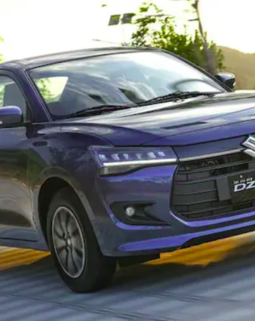In a visionary move, the Ethiopian government, a year ago, initiated incentives aimed at propelling the adoption of electric vehicles (EVs) in the country. The Ministry of Finance's decision to exempt EVs from VAT, surtax, and excise tax and a customs duty reduction for completely knocked-down kits signaled a strategic effort to foster local assembly and component manufacturing.
Incentives Unleashed: Catalyst for Change
Ethiopia's Ministry of Finance's decision to exempt EVs from multiple taxes and reduce customs duty for EV kits has set the stage for a surge in electric mobility adoption. Intending to support local manufacturing and assembly, these incentives have laid a solid foundation for the growth of the EV market in Ethiopia.
Chinese Influence: VW ID Models Take the Lead
Insights from Axel Conrad, founder of e-Car Namibia, shed light on the notable influence of the Chinese EV market in Ethiopia. Made-in-China VW ID models, including the ID.4 and ID.6, have significantly impacted, being imported directly by independent dealerships. The presence of these models in showrooms and on the roads of Addis Ababa highlights the rapid integration of Chinese EVs into Ethiopia's automotive scene.
Increasing Presence on Ethiopian Roads
Reports from Moses Nderitu visiting Addis Ababa suggest a noticeable increase in the presence of EVs on Ethiopian roads. Unofficial imports from China, featuring popular models like the Toyota bZ4x EV, Mercedes-Benz EQ range, VW's ID.4 and ID.6, and the Changan Ben Benn E-Star, have become common in the capital city. This surge indicates a growing interest and uptake of EVs among Ethiopian drivers.
Policy Impact: Thousands of EVs Enter the Market
Removing taxes on EVs has catalyzed an influx of electric cars into the Ethiopian market. Reports estimate that as many as 7,000 electric cars have entered Ethiopia since the government's policy intervention. This surge highlights the significant impact of well-crafted policy measures in rapidly boosting electric mobility adoption in African countries.
Challenges and Opportunities
While the growth in EV imports is evident, challenges such as the suspension of VW's ID range imports due to concerns raised by VW underscore the need for official channels and regulations. Moses Nderitu's observation of a lack of public chargers in Addis Ababa indicates the need for investment in charging infrastructure.
Despite these challenges, Ethiopia's low electricity tariffs and clean energy mix present an enticing environment for EV owners, providing a cost-effective and sustainable alternative to traditional fuel.
Conclusion
In conclusion, Ethiopia's journey towards sustainable mobility through the adoption of electric vehicles is gaining momentum. The government's strategic incentives have spurred rapid growth, with Chinese EVs playing a pivotal role. While challenges exist, the sheer number of EVs on Ethiopian roads within a year reflects the country's potential for a swift transition to electric mobility. As the EV landscape evolves, the focus on official channels, charging infrastructure, and policy refinement will be critical to sustaining and accelerating this transformative shift.





